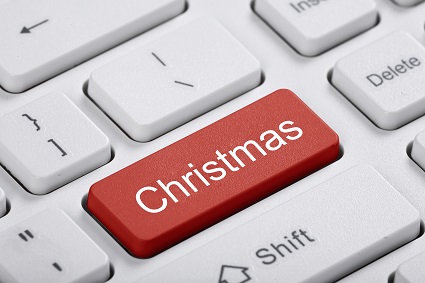 With the festive season just around the corner, you might already be thinking about giving gifts to your staff. There are ways for you to give Christmas gifts, without having to pay tax. Unfortunately, the rules surrounding avoiding tax when giving Christmas gifts are a little unclear in places. Learning more about them can help you avoid costly fines.
With the festive season just around the corner, you might already be thinking about giving gifts to your staff. There are ways for you to give Christmas gifts, without having to pay tax. Unfortunately, the rules surrounding avoiding tax when giving Christmas gifts are a little unclear in places. Learning more about them can help you avoid costly fines.
HMRC has made it quite clear that cash gifts are taxable. This includes vouchers, so you can forget popping to Debenhams to buy a few for your employees to enjoy. Vouchers and shop credit are seen as being the same as Christmas bonuses. You’re free to buy them for your employees, but they’ll be subject to specific tax rules.
If you do want to give your employees a cash or voucher gift, it’ll be taxed under the usual Pay As You Earn (PAYE) rules. Whether or not you choose to do this is up to you. As the gifts are a bonus on top of the employee’s usual earnings anyway, they’ll still stand to benefit.
Gifts that Do Not Attract Tax at Christmas
Here’s where the rules get a little confusing. You are allowed to give ‘trivial’ gifts to members of staff that are of a seasonal nature. Her Majesty’s Revenue and Customs (HMRC), aren’t exactly clear on what trivial means, nor do they give a specific upper limit on how much you can spend. However, experts in the field have found that something small like a turkey, box of chocolates, or bottle of wine would be classed as trivial. In contrast, something with significant value like a box of fine wines would not be classed as trivial. Some accountants suggest using the same upper limit attributed to customer gift giving, which is £50.
The rules surrounding gifts you give to clients are a little clearer. You can give a non-monetary gift (remember, that includes vouchers) that’s worth under £50. That £50 limit applies to one individual per annum. In addition, the gift cannot bear the businesses’ branding, nor can it appear to be an advert for the business in any way. So it’s perfectly fine to buy your client a diary, but you can’t put your company’s logo on the front, as that may be classed as advertising. Finally, the gift cannot be food, drink, or tobacco.
If your business is VAT registered, you can reclaim the VAT on the item you give to your client. On the other hand, if the gift goes above £50, you must pay VAT on it as though you have purchased it at cost. Unless your client is particularly special, you might want to try and work within that £50 limit.
What if You Want to Work Outside of the Tax-Free Rules?
You might decide that one employee is well worth more than just a trivial gift. When this happens, Class 1A NI must be paid on the gifts. As already stated, if you want to give a Christmas bonus or voucher, you need to pay PAYE and NI. Just like when you pay your staff their wages, you’ll need to put everything through your accountant.
Gift Ideas for Staff and Customers
If you want to keep things simple and operate within the tax rules, here are some seasonal gift ideas for staff:
Christmas turkey
A box of chocolates
Mulled wine
A standard bottle of wine (avoid vintage)
A selection of sliced meats
Confectionary
If you’re interested in buying gifts for your customers or clients, here are some suggestions:
Diaries
Mouse pads
Scented candles
Fine stationary
Finally, if you’re really stuck for a seasonal gift idea, you might be interested to know that HMRC class flu jabs as one. Your staff may not appreciate a jab in the arm, but it will keep your workforce healthy.
Reference:
www.hmrc.gov.uk/manuals/bimmanual/bim45065.htm

